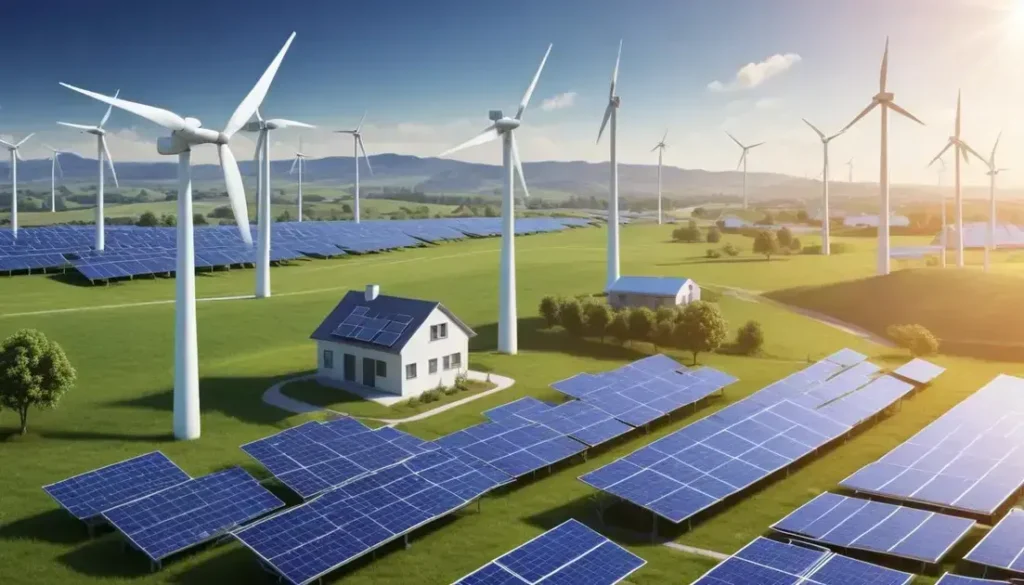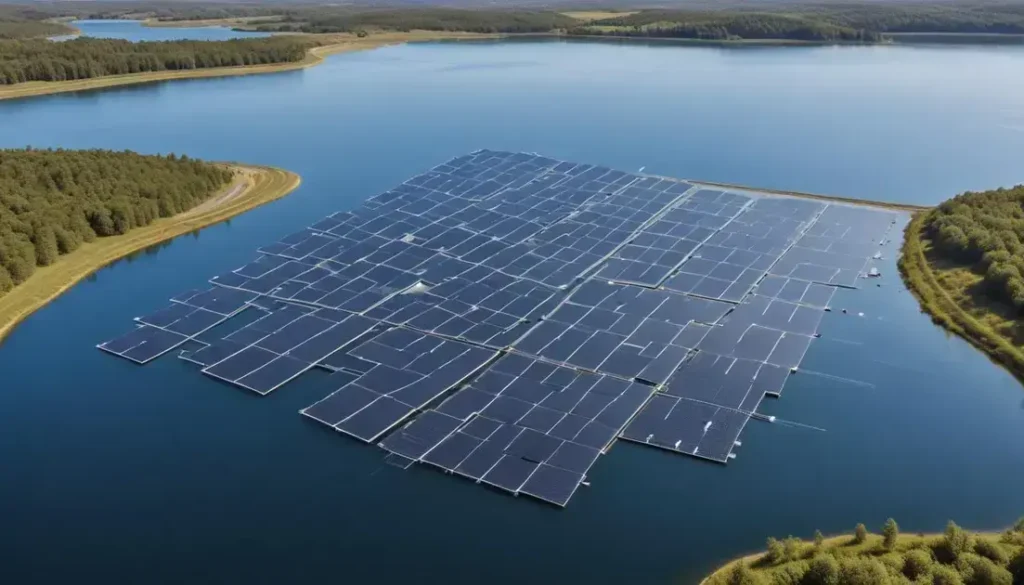London Climate Action Week (LCAW) is an annual event that unites individuals, organisations, and communities to collaborate on climate solutions, focusing on sustainability through workshops, clean-up initiatives, and the integration of clean technologies to combat climate change.
Climate action is no longer an option but a necessity. As we gear up for the London Climate Action Week 2025, understanding its significance is crucial for businesses across the UK. Let’s dive into what you need to know.
Introduction to London Climate Action Week 2025
The London Climate Action Week (LCAW) 2025 is set to be a pivotal event, spotlighting the collective efforts needed to tackle climate change. This week-long initiative is designed to bring together businesses, governments, and communities to foster innovation in sustainability practices.
Key Themes during LCAW focus on collaboration and accountability. Participants will explore themes such as renewable energy solutions, sustainable urban development, and the importance of biodiversity. Engaging discussions will highlight how these themes intertwine to create impactful strategies that are both sustainable and economically viable.
Throughout the week, a range of workshops and panel discussions will provide stakeholders with practical tools and insights. Attendees will be encouraged to think critically about their carbon footprints and the proactive steps they can take to mitigate environmental impacts.
Moreover, LCAW will showcase successful case studies from various sectors, demonstrating how innovation can lead to significant reductions in emissions. Networking opportunities will also enable participants to forge important partnerships that extend beyond the week, supporting long-term climate objectives.
History and significance of LCAW
The History of London Climate Action Week (LCAW) traces back to 2019 when it was initiated to address urgent climate challenges. This annual event has since evolved into a significant platform for dialogue, action, and innovation surrounding environmental issues.
Each year, LCAW engages a range of stakeholders, including local governments, non-profits, and businesses, to promote collaborative efforts in tackling climate change. The significance of this week lies in its ability to unite diverse voices, encouraging them to share knowledge and resources.
As the world grapples with rising temperatures and environmental degradation, LCAW serves as an essential reminder of the collective responsibility to act. The event highlights not only the importance of local initiatives but also the necessity for global cooperation in achieving sustainability goals.
Furthermore, LCAW places a strong emphasis on education. Workshops and seminars held during the week aim to inform participants about the latest research and best practices in climate action. This focus on education enhances public awareness and empowers individuals and organisations to implement sustainable practices.
The impact of LCAW extends beyond a single week. It catalyses long-term commitments to climate action, inspiring ongoing projects and initiatives that aim to foster a greener, more resilient future for London and beyond.
Key themes for 2025
In 2025, the London Climate Action Week (LCAW) will focus on several key themes that are critical for addressing climate change. One major theme is the promotion of renewable energy, showcasing innovations in solar, wind, and bioenergy. These technologies are vital for reducing reliance on fossil fuels and mitigating greenhouse gas emissions.
Another essential theme is sustainable urban development. As cities grow, it’s crucial to ensure that infrastructure adapts to be more efficient and environmentally friendly. This includes enhancing public transportation and creating green spaces that reduce heat and improve air quality.
Biodiversity preservation will also play a significant role in LCAW 2025. Discussions will highlight the importance of protecting ecosystems and wildlife, recognizing their contribution to a balanced environment. Strategies for conservation and restoration will be thoroughly explored.
Additionally, community engagement stands out as a vital aspect. Empowering local communities through education and involvement in climate initiatives fosters a sense of ownership and responsibility. This theme will encourage grassroots movements to take climate action.
By focusing on these key themes, LCAW 2025 aims to inspire a united front in the fight against climate change, driving impactful solutions and fostering resilience across UK communities.
Innovations in climate action
Innovations in climate action are crucial for addressing the pressing challenges of global warming. In recent years, technological advancements have played a pivotal role in developing new strategies to combat environmental issues. One notable innovation is the rise of smart grids, which enhance energy efficiency and distribution by monitoring real-time energy consumption.
Moreover, the integration of artificial intelligence in climate modelling has improved predictive capabilities. AI algorithms analyse vast datasets to forecast climate patterns, enabling better preparedness for extreme weather events. This technology allows scientists and policymakers to make informed decisions based on accurate projections.
The shift towards sustainable agriculture also reflects innovative approaches to climate action. By adopting practices such as precision farming, farmers can optimise resource use, reduce waste, and lower carbon emissions. This approach not only increases productivity but also contributes to environmental preservation.
Waste management innovations, including circular economy models, are transforming how resources are used. By rethinking product lifecycles and encouraging recycling, businesses are minimising waste and promoting sustainability. Furthermore, advancements in renewable energy technologies, such as enhanced solar panels and offshore wind farms, are key to reducing reliance on fossil fuels.
Engagement of diverse communities
Engagement of diverse communities is pivotal for achieving meaningful climate action during the London Climate Action Week (LCAW). By actively involving various groups, we can ensure that climate initiatives are inclusive and representative of the population’s unique needs.
One key aspect of community engagement is fostering local partnerships. Collaborating with neighbourhood organisations, schools, and businesses enables tailored solutions that resonate with specific areas. These partnerships are crucial for understanding local challenges and promoting climate awareness effectively.
Furthermore, cultural considerations play an important role in engaging diverse communities. Events during LCAW will focus on highlighting the contributions of different cultures to sustainability, showcasing indigenous knowledge and traditional practices that promote environmental stewardship. This approach not only enriches discussions but also inspires broader participation.
Another significant element is ensuring accessibility. Making information and resources available in multiple languages and formats opens doors for more individuals to engage with climate initiatives. This practice can strengthen community bonds and encourage a sense of shared responsibility towards climate action.
By recognising and valuing the input from a wide range of voices, LCAW aims to build resilient communities ready to tackle climate change collectively. The participation of diverse communities is not just beneficial—it is essential for creating effective and lasting environmental solutions.
Key events to anticipate
Key events during the London Climate Action Week (LCAW) promise to engage participants and drive impactful discussions on climate solutions. One of the standout events is the Climate Summit, which will feature influential speakers from various sectors, including government officials, business leaders, and environmental activists. This summit aims to foster collaboration and share innovative ideas.
Workshops are another highlight of LCAW, focusing on practical skills for implementing sustainable practices. These sessions cover topics such as renewable energy technologies, waste reduction strategies, and community resilience. Participants will gain valuable insights and tools to take action in their own lives and organisations.
The Green Marketplace is a vibrant space showcasing local businesses that prioritise sustainability. This event encourages networking between eco-friendly companies and consumers, promoting responsible consumption. Visitors can discover sustainable products and services, further embedding climate consciousness into their daily routines.
Additionally, community-led initiatives will take centre stage through various outdoor events, including tree planting drives and clean-up campaigns. These activities foster community spirit and highlight the importance of local action in the fight against climate change.
By participating in these key events, individuals and organisations can play a vital role in shaping a sustainable future, making LCAW an essential gathering for climate advocates.
Role of global leadership
The role of global leadership is crucial in addressing climate change effectively. Leaders from different nations must unite to create comprehensive strategies that drive significant progress. During the London Climate Action Week, discussions will emphasise how strong leadership can galvanise international efforts to tackle environmental challenges.
Global leaders have the power to set an agenda that prioritises sustainability on the world stage. By committing to binding agreements and facilitating cooperation, they can encourage countries to share resources and technologies that combat climate change. This collaboration enhances innovation while addressing the critical needs of developing nations.
Moreover, effective leadership promotes transparency and accountability. By measuring progress and reporting results, leaders can build trust among nations and stakeholders. This commitment to openness ensures that all parties are motivated to achieve the set climate targets.
Additionally, global leadership fosters public awareness and engagement. By sharing success stories and strategies, leaders can inspire communities worldwide to take local action. Mobilising citizens through education and participation is vital for creating a grassroots movement that supports global objectives.
Ultimately, the active involvement of leaders from all sectors—government, business, and civil society—will be instrumental in steering global policies towards a sustainable future, making their role indispensable in the fight against climate change.
Resilience strategies for vulnerable groups
Resilience strategies for vulnerable groups are essential in the context of climate change. These communities often face the most severe impacts of environmental challenges, making it crucial to implement tailored approaches that enhance their adaptability. One effective strategy is improving access to sustainable resources. Providing clean energy options, such as solar power, can reduce reliance on costly and unreliable energy sources.
Another vital aspect is the establishment of community-based support networks. These networks empower individuals by sharing knowledge, resources, and practical solutions to climate-related risks. For example, local groups can organise workshops on disaster preparedness, educating residents on how to respond effectively to extreme weather events.
Enhancing infrastructure is also a critical strategy. Investing in resilient housing and transportation systems can significantly reduce the vulnerability of at-risk populations. Urban planning that incorporates green spaces can help mitigate the urban heat island effect and improve overall community health.
Public policy plays a crucial role in supporting these strategies. Governments must prioritise funding for community resilience programmes and engage vulnerable groups in decision-making processes. By ensuring that their voices are heard, policymakers can create solutions that address real needs and foster long-term sustainability.
Overall, implementing resilience strategies is a proactive step towards safeguarding vulnerable communities as they navigate the realities of a changing climate.
Integration of clean technology
The integration of clean technology is essential for combatting climate change and fostering sustainable development. Clean technology encompasses a range of innovations designed to reduce environmental impacts while promoting efficient resource use. One significant area of focus is the advancement of renewable energy sources, such as solar, wind, and hydroelectric power. These technologies not only lower greenhouse gas emissions but also offer long-term energy solutions.
Furthermore, the adoption of energy-efficient systems in buildings and industry plays a crucial role. These systems reduce energy consumption while maintaining performance, leading to significant cost savings and lowering the carbon footprint. For instance, modern insulation materials and smart heating controls can greatly enhance energy efficiency in homes and commercial properties.
Investment in clean transportation is another critical aspect of integrating clean technology. Transitioning to electric and hydrogen fuel cell vehicles not only decreases air pollution but also supports the global shift towards sustainable urban mobility. This transition will require widespread charging infrastructure and public transportation systems powered by renewable energy.
Lastly, fostering collaboration between governments, businesses, and researchers is vital for accelerating the adoption of clean technology. By creating supportive policies and innovative funding mechanisms, stakeholders can drive rapid changes that contribute to a more sustainable future.
Participating in LCAW initiatives
Participating in London Climate Action Week (LCAW) initiatives offers individuals and organisations a unique opportunity to contribute to meaningful climate solutions. These initiatives not only uplift local and global efforts but also empower communities to take ownership of their environmental responsibilities. Various events are organised throughout the week, focusing on collaboration and knowledge sharing.
Workshops are a key feature of LCAW, providing practical skills in sustainability practices. Participants can learn about renewable energy, waste reduction techniques, and sustainable agriculture. These workshops are designed to engage everyone, from beginners to experienced advocates, ensuring that all skill levels are accommodated.
Additionally, community clean-up drives and tree planting campaigns encourage active involvement. These hands-on activities allow participants to witness the immediate impact of their efforts on the local environment, fostering a sense of connection and responsibility.
Volunteering for LCAW not only enhances personal skills but also expands professional networks. Collaborating with like-minded individuals and organisations can lead to lasting partnerships focused on shared climate goals. Engaging in these initiatives further inspires others to participate, creating a ripple effect of action and awareness.
By taking part in LCAW initiatives, individuals and groups can collectively push for a more sustainable future, making their contributions vital in the fight against climate change.
In conclusion, taking action against climate change
Climate change is a critical challenge that affects us all, and the initiatives during London Climate Action Week (LCAW) demonstrate how we can respond. By focusing on collaboration, knowledge sharing, and community engagement, we can all contribute positively to our environment.
Participating in LCAW initiatives provides individuals and organisations with valuable opportunities to learn and grow together. These experiences not only enhance our understanding of sustainability but also inspire collective action.
As we adopt clean technologies, engage diverse communities, and support climate-friendly policies, we can create a resilient future for our planet. Every small action counts, and when we come together, our efforts can make a significant impact. So let’s embrace our roles as stewards of the Earth and work towards a more sustainable world.
Remember, it’s within our power to influence change and pave the way for future generations.
Frequently Asked Questions
What is London Climate Action Week (LCAW)?
London Climate Action Week is an annual event that brings together individuals, organisations, and communities to collaborate on solutions for climate change and sustainability.
How can I participate in LCAW initiatives?
You can participate by attending workshops, joining community clean-up events, and engaging in local sustainability projects throughout the week.
Why is clean technology important for climate action?
Clean technology is crucial because it helps reduce greenhouse gas emissions and promotes sustainable resource use, contributing to a healthier environment.
What role do communities play in addressing climate change?
Communities play a vital role by participating in grassroots initiatives, sharing knowledge, and implementing local solutions that enhance resilience against climate impacts.
How can I educate myself about sustainability practices?
You can educate yourself through workshops, online courses, and resources provided during LCAW, which cover various sustainability topics and best practices.
What are some examples of resilience strategies for vulnerable groups?
Examples include improving access to renewable energy, establishing community support networks, and enhancing infrastructure to protect against climate risks.


